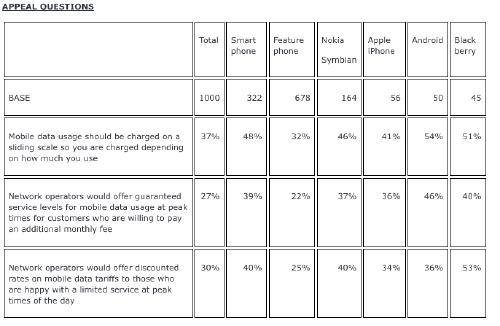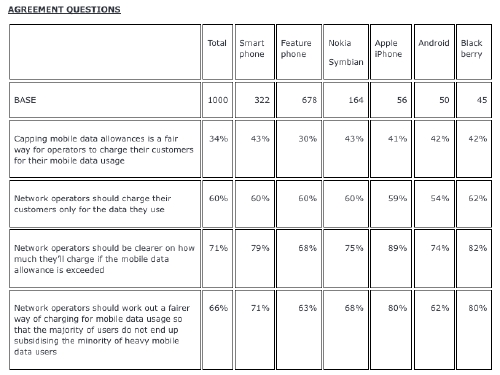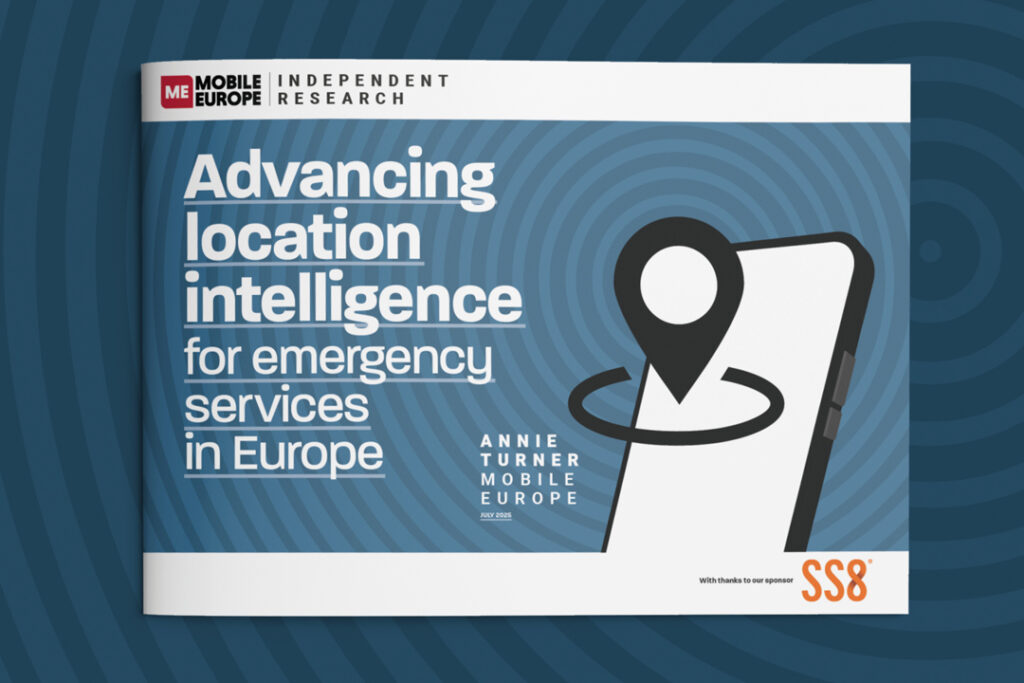Mobile Europe recently asked Ryan Garner, Research Manager of GfK NOP Technology, to undertake some research on our behalf. What, we wondered, would consumers make of data caps and limits if they were explained to them in terms of fairness?
Garner thought that was in interesting proposal, and drew up some questions to put to 1,000 UK consumers. His findings are below, written up by him. Our thanks go to Garner for undertaking this work, and sharing the results with us.
The importance of fairness and clarity in mobile data charges
The decision by UK network operators to cap mobile data allowances hasn’t been the most popular move with UK mobile phone users. Recent research undertaken by GfK on behalf of Mobile Europe shows that only a third (34%) of UK mobile phone users agree that capping mobile data usage is the fairest approach.
Despite these low levels of concurrence, very few people actually disagree with capping data usage as most mobile users (49%) have no opinion either way. This indecisiveness from UK consumers shows that whilst they don’t want constraints on their usage they realise it has become necessary.
What consumers are clearer on is how network operators should communicate mobile data charges and the need for a fairer way of charging for this usage. Two-thirds (66%) of UK mobile phone owners believe network operators should design a fairer way of charging for mobile data usage. Consumers want a system that ensures that the majority of average users do not end up paying for the minority of heavy users. Interestingly this level of agreement is more pronounced among smartphone owners (71%) and particularly among iPhone owners (80%) and Blackberry owners (80%). These types of smartphone users are now reliant on their phones as they have become a fundamental part of their day-to-day lives. The apps and services available on smartphones help people get things done and have more fun which means consumers simply don’t want to regress and give these new found benefits up. Whilst people accept that usage of an ‘always on’ smartphone adds extra strain to the performance of an operator’s network they just want a fairer way to pay for their usage without compromising on the quality of service.
Heavily linked to this is that almost three-quarters (71%) of all mobile phone users want Network Operators to be clearer about how much they’ll be charged if they go over their data allowance. Again this view is more pronounced among smartphone users (79%) particularly iPhone owners (89%) and Blackberry owners (82%). This is not surprising as historically iPhone owners have been used to unlimited data tariffs and not had to monitor their mobile data usage. Now that caps have been set, they simply don’t know how much their smartphone usage habits will cost. Essentially, for the majority of consumers their love affair with unlimited tariffs was more about controlling their monthly costs. As unlimited data plans have been scrapped consumers who rely on mobile services and apps that require mobile data are unsure and what their monthly costs will amount to.
So what is the solution? How do network operators charge for mobile data that is fair for the average user and helps them control their monthly outgoings but at the same time deters excessive usage?
There’s no silver bullet that will solve this problem as different consumers have different needs and have been used to certain ways of paying for the mobile data usage. We tested a few possible solutions, the most popular with 37% appeal (48% among smartphone owners) was charging for mobile data on a sliding scale in line with their usage. This would work by signing up to a plan where the costs of mobile data usage fall within bands i.e. up to 250mb = £2.5 per month, up to 500mb = £5, etc. The consumer would know upon signing-up how much they’ll be charged within each band. The key for this working (and possibly the reason why appeal isn’t higher) is that operators need to notify (preferable via SMS) their customers on how much mobile data they’ve used and when they enter a higher rate band.
This way consumers can keep an eye on how much they’re spending and manage their monthly bills more effectively.
The other two options we tested were focused on trading off cost against performance and these were less appealing. The first option offered discounts to people who would accept a limited service at peak times and this only received an appeal rating of 27% among UK mobile phone owners (39% among smartphone owners). The second proposition which received an appeal rating of 30% (40% among smartphone owners) offered ‘guaranteed’ service levels at peak times for a premium price.
These low levels of appeal suggest that ‘fairness’ for users of mobile data is more about operators offering a good ‘value’ service and less about financial incentives. People who rely on mobile data are seemingly less price sensitive and would rather keep the level of service consistent with what their used to. This is most evident among iPhone users who have been used to unlimited data plans since the iPhone was launched back in 2007.
iPhone users find all alternative methods of charging for mobile data less appealing when compared to the average smartphone user.
iPhone users are less compromising when it comes to anything but unlimited data.

* The percentages in the tables above are levels of top 2 box agreement or appeal on a five point scale.



